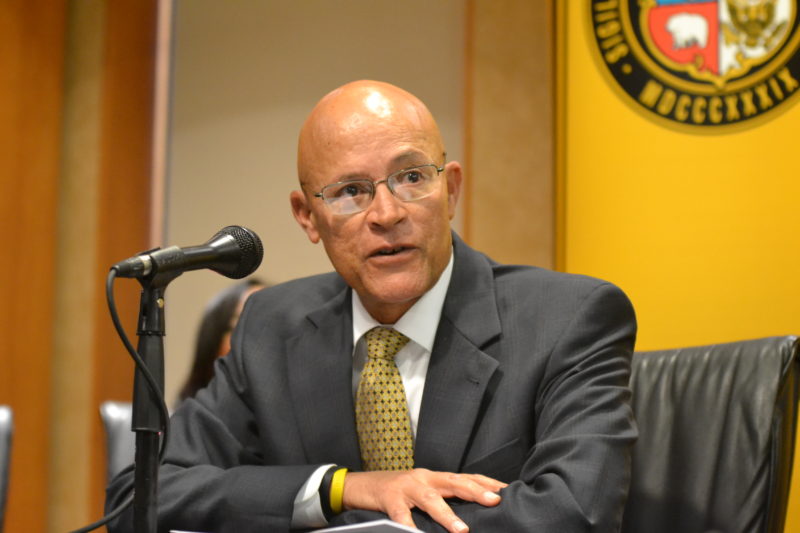JEFFERSON CITY, Mo. – House Minority Leader Gail McCann Beatty penned a letter to Interim University of Missouri System President Mike Middleton asking him to revoke the university’s endorsement of a bill she argues paves the way for more discrimination.
“I am deeply disturbed and disappointed that the University of Missouri System has publicly stated support for legislation that seeks to gut civil rights protections in our state and essentially lock the courthouse doors to victims of unlawful discrimination,” she wrote. The full letter can be read at the end of the story.

Rep. Kevin Austin’s HB 552 would alter the Missouri Human Rights Act to change the standard for discrimination lawsuits. Under Austin’s bill, discrimination against an employee would have to be the sole factor for a discrimination lawsuit, not merely a contributing factor as it is today. Austin argues the bill will “even the playing field” between plaintiffs and defendants in such cases.
“It doesn’t make it any easier for companies, it doesn’t make it any harder for plaintiffs who feel they’ve been discriminated against,” Austin said earlier this month.
Democrats have strongly opposed the legislation, saying it would make discriminatory intent nearly impossible.
The bill received widespread attention two weeks ago when Rep. Bill Lant, the chair of the Special House Committee on Litigation Reform, cut off testimony from Missouri NAACP President Rod Chapel during the committee hearing on the bill. Chapel likened the bill to a “Jim Crow” law before Lant silenced his microphone.
The UM System is not the only education group that spoke out in favor of the bill. Chapel expressed his displeasure when Washington University also endorsed the measure. Beatty continued her letter by adding she found it “puzzling” the University of Missouri System would come out in favor of a measure that peels back protections of the Human Rights Act, especially after the ConcernedStudent1950 protests in 2015.
A statement from Middleton sent to The Missouri Times noted the institution protects not only the currently accepted distinctions by the state but also LGBT people from workplace discrimination. The state offers no such protections based on gender identity or sexual orientation.
He added the university only supported the measure in a narrow sense and added employees would still have access to to the legal system.
“In legal terms, the UM System wants to be treated the same as other public entities including state government agencies and local municipalities when it comes to the issue of punitive damages in discrimination cases,” he said. “Proposed legislation pending in the General Assembly… would exempt the state and its political subdivisions from punitive damages in discrimination lawsuits. We are merely seeking to clarify that public higher education institutions also will be included in this exemption, a level of protection the University has sought consistently for nearly ten years.”
The hearing on the bill has not yet been voted on in executive session. Mun Choi is set to become the the next president of the UM System.
